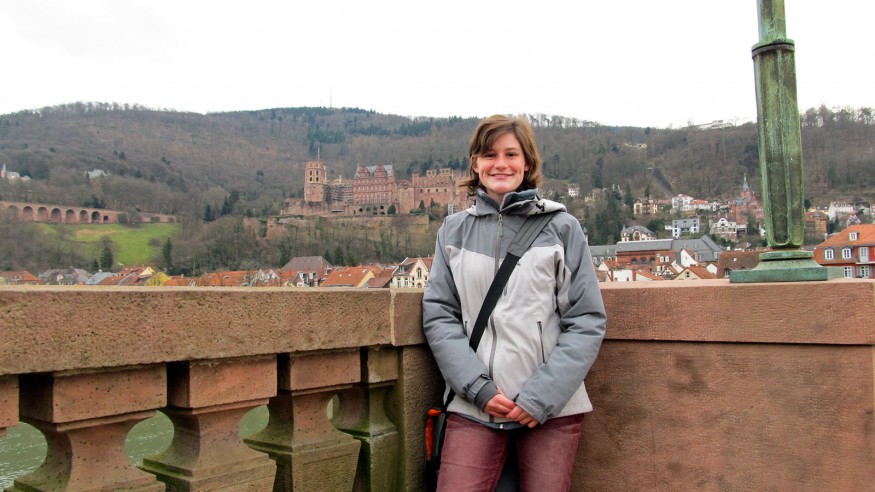
Theory-to-Practice Grant, ‘When Species Collide’
Learn how OWU’s Course Connections, Travel-Learning Courses, Theory-to-Practice Grants, and other programs prepare students for global citizenship and leadership and help them…Make the Connection.
Emily Johnson ’15 used an OWU-funded Theory-to-Practice Grant to study which trees were preferred by foraging European Nuthatches in Germany. (Photo courtesy of Emily Johnson)
Name: Emily Johnson ’15
Majors: Zoology and German Studies
Minor: Religion
Hometown: Charlotte, North Carolina
Experience: “When Species Collide: The Effects of Habitat and Ecological Competitors on White-Breasted and Eurasian Nuthatch Foraging Strategies,” Germany (Cologne and Kottenforst), February 2014
“My Theory-to-Practice Grant allowed me to indulge two of my passions while doing research for an independent research project. I love birds, and I love the German language and country. This grant allowed me to study the tree preferences during foraging of the European Nuthatch in Cologne and in Kottenforst. Because of this grant, I can now complete a comparative study of White-breasted (Ohio) and European Nuthatch (Germany) tree preferences.
“I think the experience of writing a grant to travel alone abroad for an extended period of time is extremely important. Writing a grant for such a trip forces you to be organized and think ahead. Traveling alone in a country that speaks another language pushes you out of your comfort zone. You have to find the courage to go out every day and confront a foreign culture in order to get your work done. Traveling to do research is different than traveling as a tourist. You have to learn the language of the country and learn to live like the people of that country and work with their systems.
“Not many students get the opportunity to conduct a research project abroad for a month. I know that I will never forget this experience or the lessons it has taught me. I think the Theory-to-Practice Grant program really gives students at OWU a great opportunity to travel, but also to learn and grow as a student. I never expected to gain such confidence in myself and my ability to conduct a research project, especially while in another country alone.”
